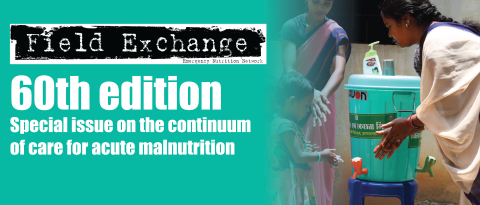SCOPE CODA: World Food Programme innovation to improve data management in malnutrition treatment
The World Food Programme (WFP) has introduced a cloud-based innovation named ‘SCOPE CODA’ to improve data management in malnutrition treatment programmes. The application gives a digital identity to clients and tracks nutrition and healthcare services, replacing pen-and-paper records, ration cards and reports in healthcare centres with android devices and a personalised smartcard linked to an electronic database. The application builds on WFP’s existing client management system, SCOPE, to merge identity management with case management.
Frontline workers use an android device to record routine malnutrition treatment processes during treatment, from registering the client with a unique identity and collecting anthropometric and health data to recording the distribution of nutritional products and other medicines and health commodities. The data collected creates a complete electronic health record of the malnutrition treatment that the client receives across both moderate and severe acute malnutrition treatment (currently to WFP and partner programmes). This record is saved in the android device and then written to a smart card, which is provided to the client to act as their record. All these processes can be done offline; once connectivity is available, the android device syncs to and saves the data to the cloud. Cloud data is analysed and sent to national government health information systems to provide up-to-date, accurate reports to improve programme planning and performance.
Where SAM and MAM programmes are integrated (e.g. South Sudan), the devices and cards are provided to frontline workers. Where SAM and MAM treatment is provided in separate locations (e.g. Uganda), WFP provides the system to the government to use across the programme. Since the android devices are needed to add or read data from the cards, organisations currently need to come via WFP to utilise the system. WFP is looking at building a more open hardware system (i.e. that would require downloading an application and programming a Java Card) to facilitate access.
SCOPE CODA seeks to improve client’s care and nutrition results through improving decision-making for frontline workers and utilising the data to generate evidence on best practices. Digitisation also has the potential to improve quality of data, lessen the workload of frontline workers and reduce programme inefficiencies. Finally, since the system works across both severe and moderate acute malnutrition, it provides a unified platform to aid information continuity among multiple stakeholders involved in delivering treatment services.
SCOPE CODA is presently being used in South Sudan, Uganda, Tajikistan and Madagascar. Over the next year WFP will roll it out to countries with a high acute malnutrition burden to expand the digitisation of nutrition services.
For more information, visit the website or contact Craig Arnold at craig.arnold@wfp.org


